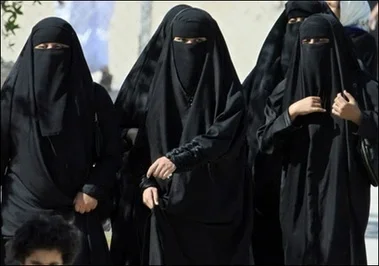Matt3737
Similes are like songs in love.
- MBTI
- INFJ
[MENTION=933]Seraphim[/MENTION]
We're getting a little off track here, so let me try to restate my opinion and see if you better understand my point of view.
I am all for gender-equality, but I am not a feminist. You conflate the two as being synonymous and then regard any dismissal of feminism as also being anti-equality. This is simply just not so.
When I said that feminism validates itself with an undeniable human virtue, I mean that in essence gender equality can be restated as the Golden Rule. This is a universal human moral maxim that is found in nearly every ethical tradition throughout history. How can anybody make a valid argument against this? When you conflate the specifics of feminism with the broader universal, then any criticism against a specific point of feminism is thusly taken to be a criticism of the broad and universal. This is simply just not so.
I can agree with the broad universal truth without being a part of the specific manifestation that you ascribe to BECAUSE it is broad and can take different forms and be expressed in different manners. This is what makes it broad and universal. All thumbs may be fingers, but not all fingers are thumbs.
My personal distaste for feminism is the assumption of inequality. In this, I take issue with the abstract notion of inequality, not necessarily a specific incident of inequality i.e. when someone says that women are treated unequally to men I might disagree because we're dealing with abstractions and unclear interpretations of what these things mean and imply that could also be explained or interpreted in a different manner. But if put into a specific context, I might agree that an inequality exists in that context that would also imply a proposed method of resolution.
Stating that women are treated unequally to men is too broad and is simply a complaint without a resolution, because it's abstract. It amounts to stating that the grass is greener on the other side of the fence which is implicative of a subjective viewpoint without resolution. If you begin the premise that women are treated unequally to men, then when are they no longer treated unequally? If the grass is considered greener on the other side, when does one's lawn finally become green enough? When is one subjectively validated if they begin with the premise that other's do not consider them valid? It's a vicious circle until you stop and realize that the underlying assumption need be changed.
We're getting a little off track here, so let me try to restate my opinion and see if you better understand my point of view.
I am all for gender-equality, but I am not a feminist. You conflate the two as being synonymous and then regard any dismissal of feminism as also being anti-equality. This is simply just not so.
When I said that feminism validates itself with an undeniable human virtue, I mean that in essence gender equality can be restated as the Golden Rule. This is a universal human moral maxim that is found in nearly every ethical tradition throughout history. How can anybody make a valid argument against this? When you conflate the specifics of feminism with the broader universal, then any criticism against a specific point of feminism is thusly taken to be a criticism of the broad and universal. This is simply just not so.
I can agree with the broad universal truth without being a part of the specific manifestation that you ascribe to BECAUSE it is broad and can take different forms and be expressed in different manners. This is what makes it broad and universal. All thumbs may be fingers, but not all fingers are thumbs.
My personal distaste for feminism is the assumption of inequality. In this, I take issue with the abstract notion of inequality, not necessarily a specific incident of inequality i.e. when someone says that women are treated unequally to men I might disagree because we're dealing with abstractions and unclear interpretations of what these things mean and imply that could also be explained or interpreted in a different manner. But if put into a specific context, I might agree that an inequality exists in that context that would also imply a proposed method of resolution.
Stating that women are treated unequally to men is too broad and is simply a complaint without a resolution, because it's abstract. It amounts to stating that the grass is greener on the other side of the fence which is implicative of a subjective viewpoint without resolution. If you begin the premise that women are treated unequally to men, then when are they no longer treated unequally? If the grass is considered greener on the other side, when does one's lawn finally become green enough? When is one subjectively validated if they begin with the premise that other's do not consider them valid? It's a vicious circle until you stop and realize that the underlying assumption need be changed.

